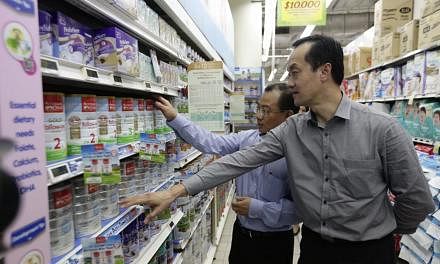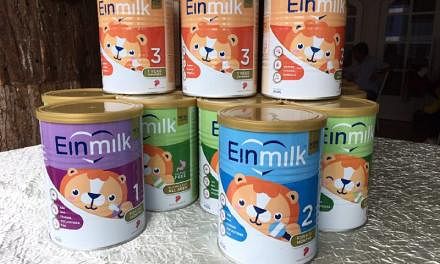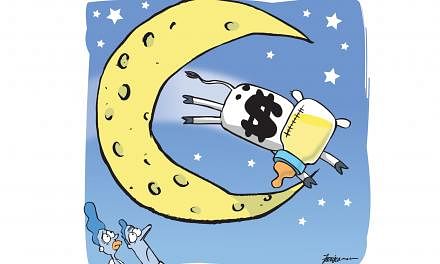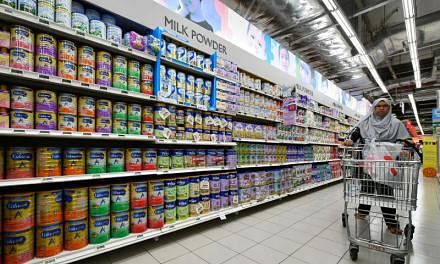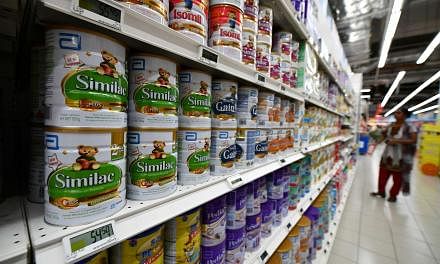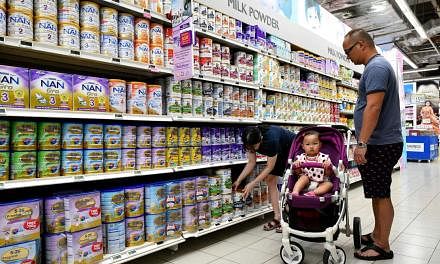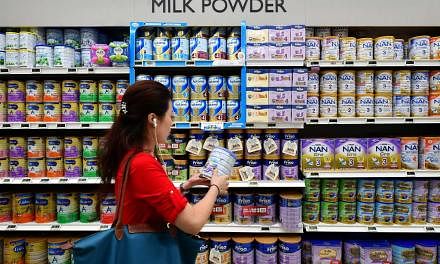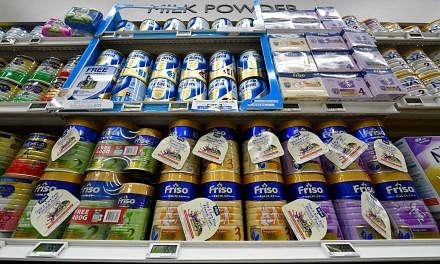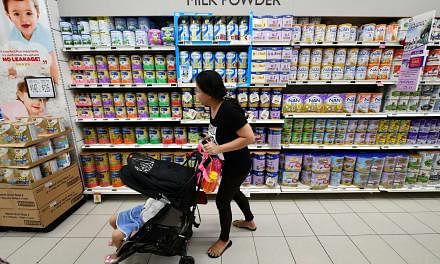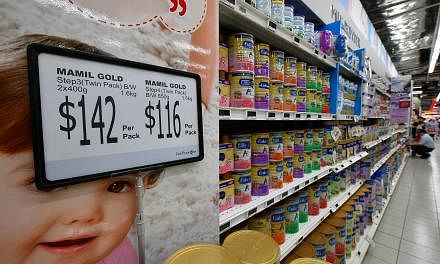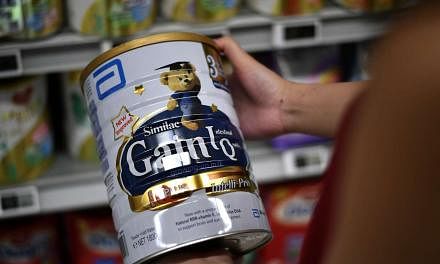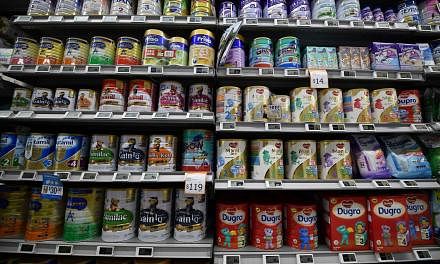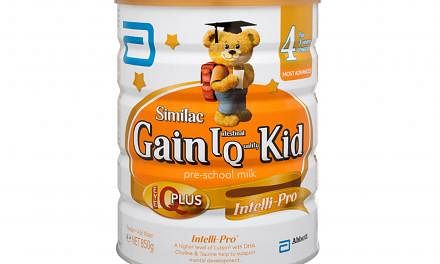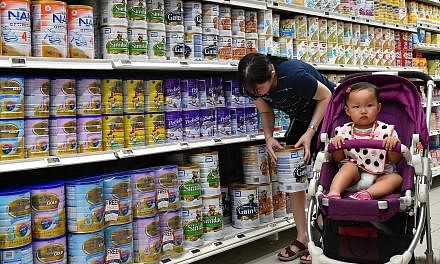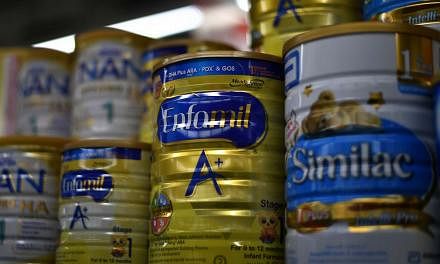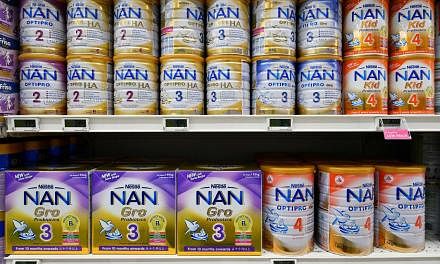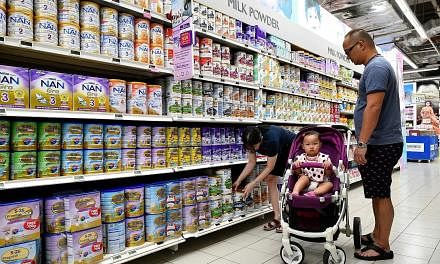Parents remained loyal to their chosen brands of milk powder even as the average price of formula continued to tick upwards, nearly a year after concerns about affordability prompted the formation of a government task force and a flurry of new products to appear on shelves.
Despite the mitigating measures, the average price of a 900g tin of infant milk powder went up by 59 cents to $56.65 last year, according to the Consumer Price Index (CPI) released by the Department of Statistics (Singstat) last week.
Though one economist noted that the increase was much smaller than in previous years, analysts generally agreed that the index demonstrated the hold established brands have on consumer choice.
In response to queries, the Senior Minister of State for Trade and Industry and head of the task force, Dr Koh Poh Koon, said six new brands with 25 product lines have been introduced since May last year.
All are priced under $56.65 per 900g, while 16 cost no more than $35, said Dr Koh.
However, none of them made it into the weighted basket of goods used to measure CPI, which is made up of products commonly purchased by the majority of households. This, Dr Koh said, was because the new brands were "relatively new and do not yet account for significant market share".
The task force will provide a fuller update on formula milk measures in the coming weeks, he added.
Nonetheless, the numbers show that brand perception can be difficult to shake, said economist Jochen Krauss, a managing partner at international pricing consultancy Simon-Kucher & Partners.

"Consumers have been complaining but are still purchasing the expensive formula," he said. In fact, established brands had positioned their price valuations correctly, as there has been no pressure on them to lower prices despite new competition, said Dr Krauss.
CIMB Private Banking economist Song Seng Wun said: "It is hard to change that psychology, especially since parents want to give the best to their kids and milk powder is a short-term purchase."
But he noted that last year's average price increase was less than that of previous years, when there were jumps of as much as $6, so the public outcry and government scrutiny may have cautioned formula companies against further hikes.
"The days of the kind of big price increases we saw in the past are perhaps behind us, but (the firms) are still in a position to dictate prices because demand is still there," he said.
Some supermarkets said acceptance of new brands is growing, but Dairy Farm said that sales at Cold Storage and Giant for new brands such as Einmilk have been slow.
"As this category sees high brand loyalty among consumers, it may take some time for brands that are new to the market to establish trust and loyalty," said a spokesman.
Parents were by and large reluctant to try new brands that they did not know much about. But one was willing to switch to Einmilk to supplement her second baby's feeds.
Ms Juan Lim, 33, a marine and offshore engineer, spent about $240 a month on Similac for her first son, but her second is being breastfed, with the occasional supplement.
"This time I got a nanny and pushed myself to continue pumping more breast milk... Breastfeeding is cheaper and it is better for babies," she said.


